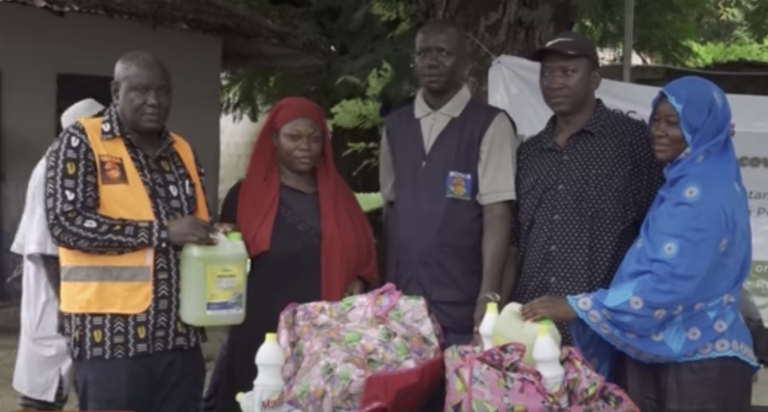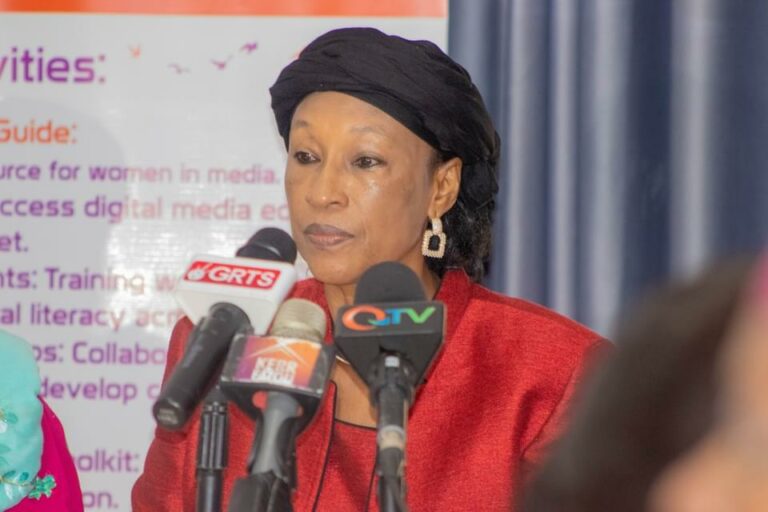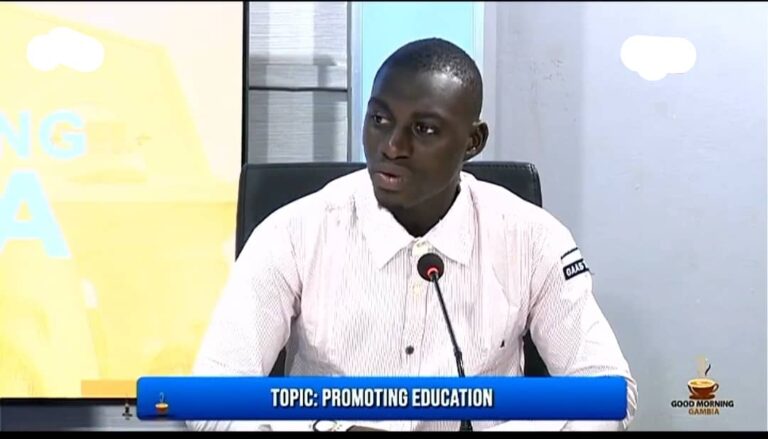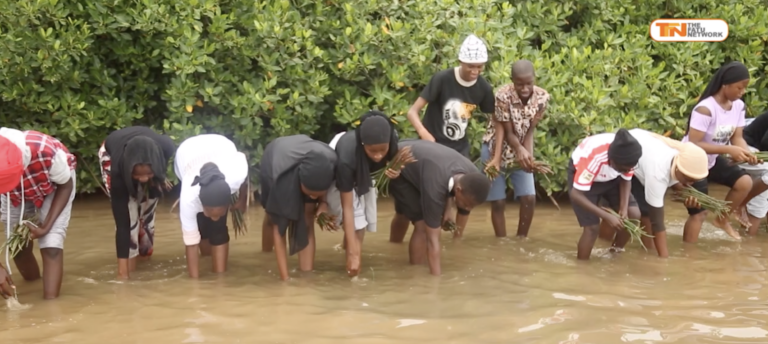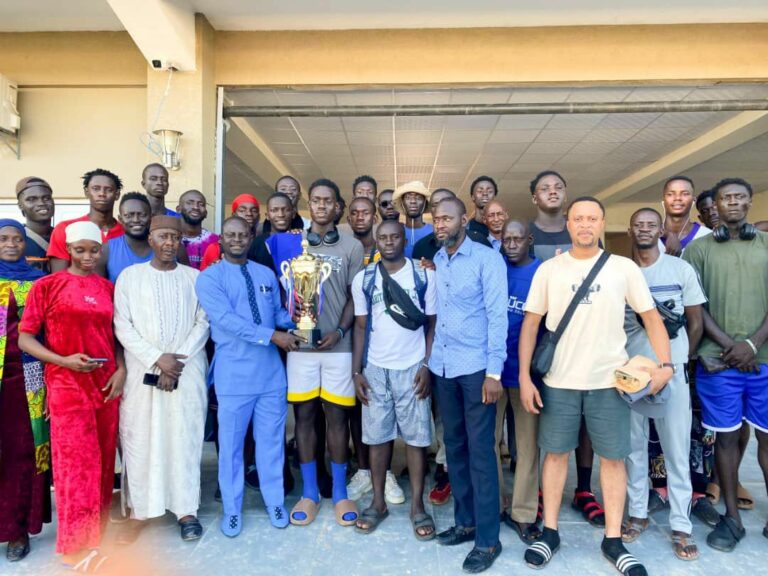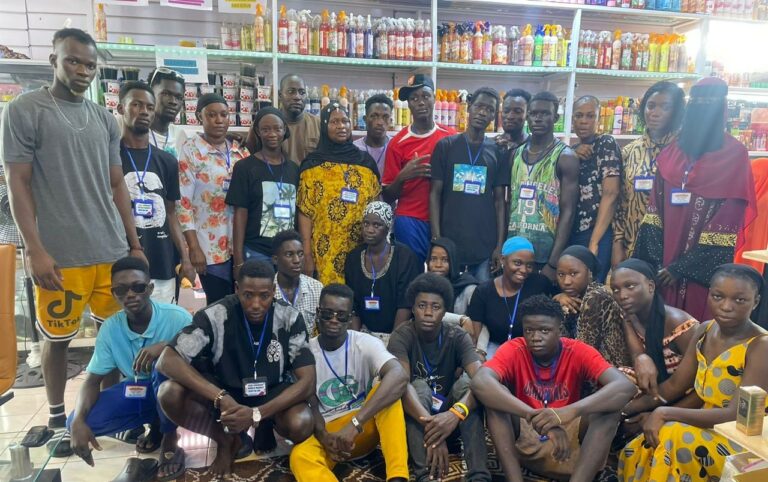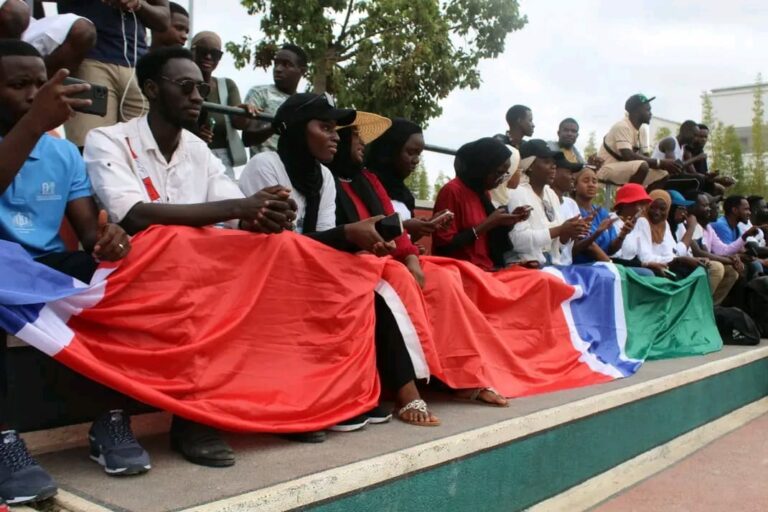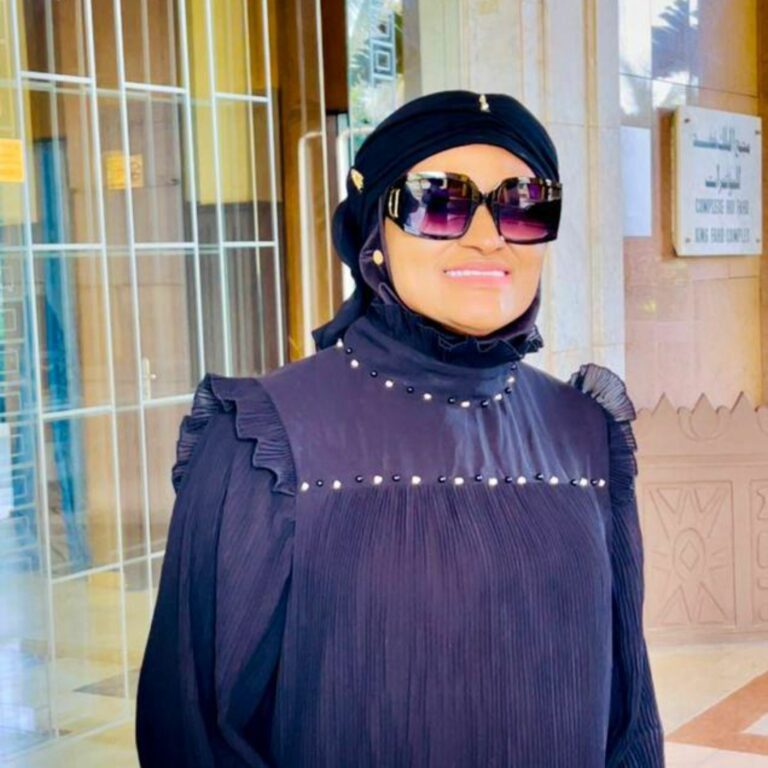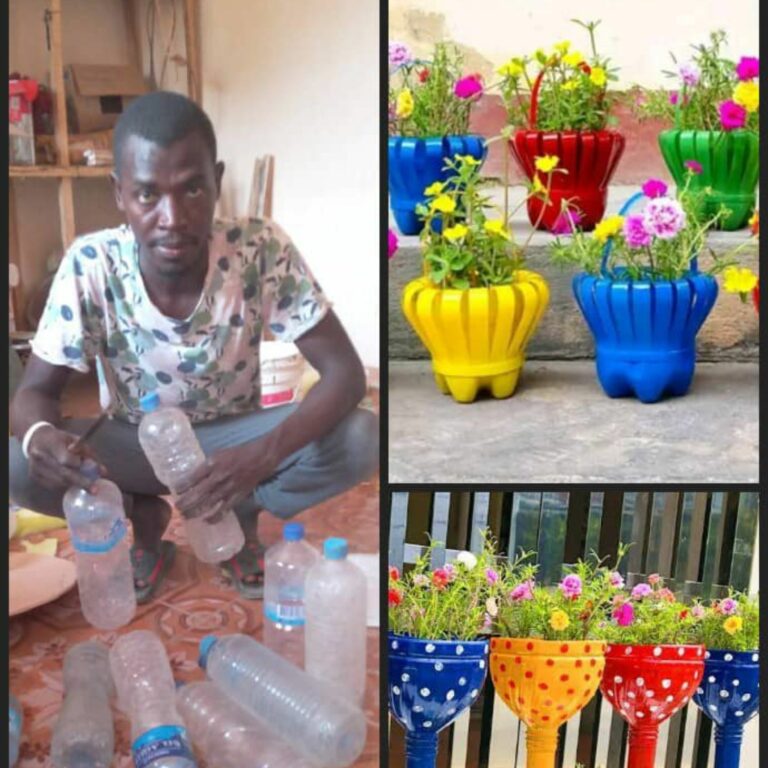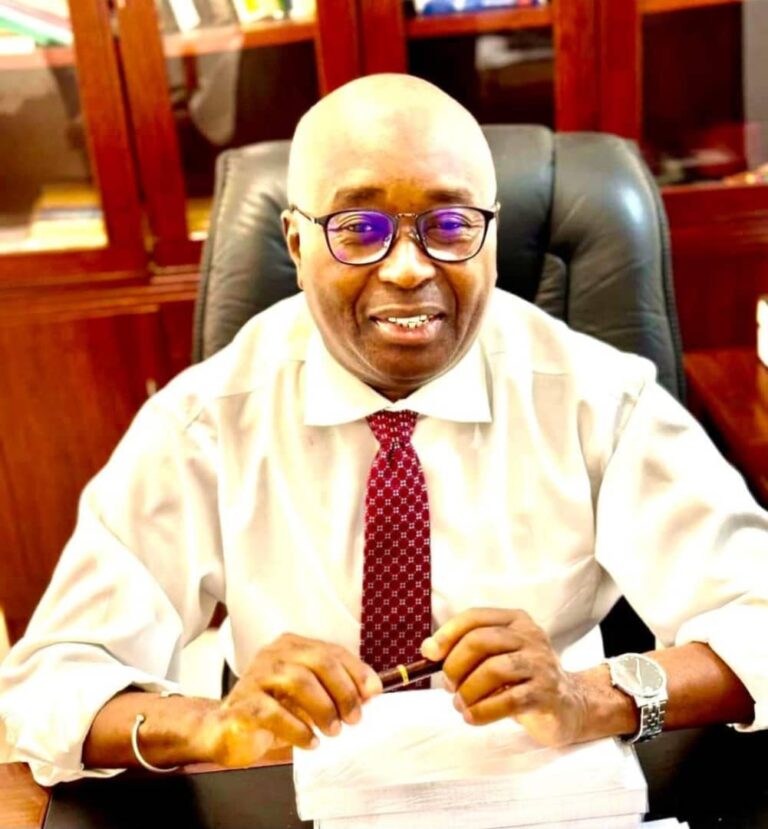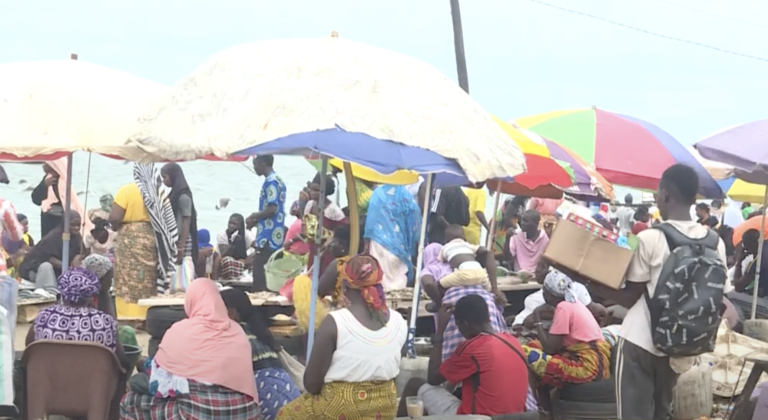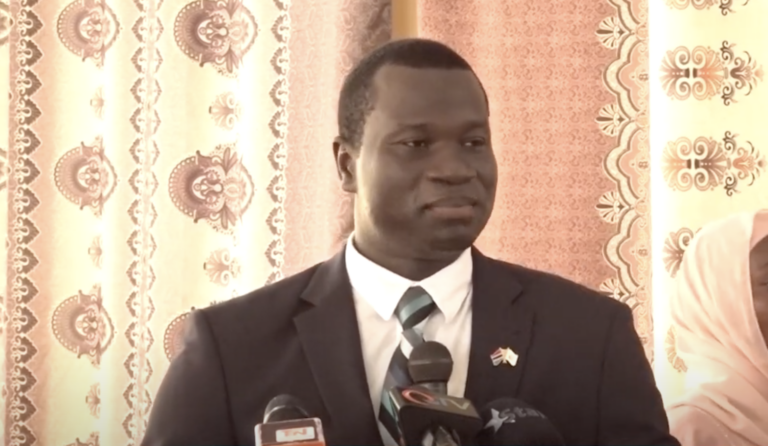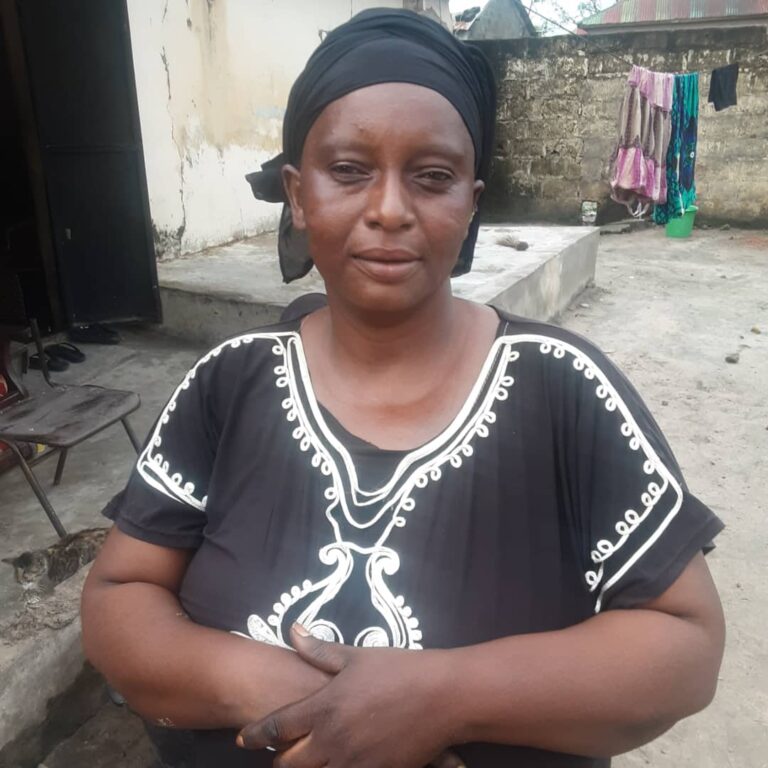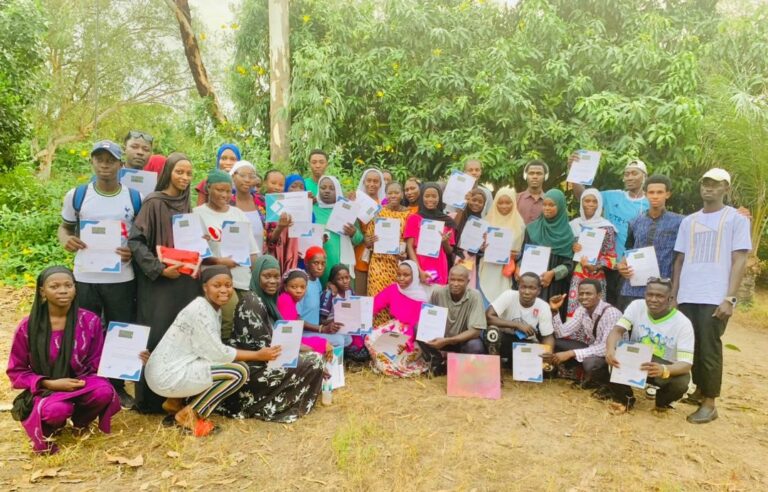Support Continues for 2022 Flash Flood Victims in KM
Support Continues for 2022 Flash Flood Victims in KM
Child Care Gambia and Partners Launch Major Mangrove Restoration Effort, Planting 15,000 Trees in Bakau Tanbi Wetlands
Child Care Gambia and Partners Launch Major Mangrove Restoration Effort, Planting 15,000 Trees in Bakau Tanbi Wetlands
A New Era for Crime Investigation as the Gambia Police Force Launches Modern Forensic Lab
A New Era for Crime Investigation as the Gambia Police Force Launches Modern Forensic Lab
Urgent Call for Clarity and Action Regarding Delayed Stipend Payments for Gambian Students in Morocco – 2023/2024 Academic Year
The Gambia Students’ Association in Morocco (GASAM) expresses its deep concern and frustration over the ongoing delays in the disbursement of stipends for Gambian students in Morocco for the 2023/2024 academic year. Gambian students in Morocco have been left stranded for thirteen months without stipends, and it seems MoHERST has succeeded in making Gambians believe the matter has been resolved, which is far from the truth. The stipends, which many students depend on for essential living and academic expenses, have yet to be paid, causing significant financial hardship.
Following consultations with our contact at the Ministry of Higher Education, Research, Science, and Technology (MoHERST), GASAM was informed that the stipend payments had been issued on 27th August 2024. However, this contradicts MoHERST’s press release dated 2nd September 2024, which stated that the Treasury had transferred funds to the Central Bank of The Gambia (CBG) on 19th August 2024 for onward transmission to the Gambian Embassy in Morocco.
Further inquiries by GASAM alumni in The Gambia, through their contacts at the CBG, revealed that no payment instructions had been received for Gambian students in Morocco as of last week. Additionally, GASAM has been in constant communication with the Gambian Embassy in Morocco regarding the status of the stipends. Shockingly, even the Embassy has no knowledge of when the funds will arrive in their accounts.
This situation is both unacceptable and deeply distressing. We demand transparency and accountability from all relevant authorities. Specifically, we call for the following:
- Immediate payment of stipends for both the first and second batches of students without further delay.
- Concrete proof of payment, including evidence of the funds being transferred, as claimed by MoHERST.
- A clear timeline for the resolution of these delays to ensure that such issues do not recur in the future.
Gambian students should not be left in the dark or suffer due to bureaucratic inefficiencies. The lack of straightforward communication on this matter is not only frustrating but also disrespectful to students who rely on these funds to pursue their education.
Enough is enough. We demand the truth, and we demand immediate action. The futures of Gambian students should not be jeopardized by unnecessary delays.
Gambia Students’ Association in Morocco (GASAM)
Opinion: Empowering Over Pressuring: Rethinking Early Marriage Expectations for African Girls
By: Michaella Faith Wright
In many African societies, young women face immense pressure to marry early, often driven by the belief that marriage equates to success and fulfillment in life. This cultural expectation, especially prevalent among mothers, tends to overshadow the importance of education and personal empowerment. There is a growing need to rethink this narrative and prioritize the empowerment of girls through education and skills training rather than pushing them into early marriage.
Marriage, while significant, should not be viewed as the ultimate milestone that defines a girl’s worth. The emphasis on marrying young can rob girls of the chance to grow, learn, and develop their independence. Education offers young women the tools to make informed decisions, giving them the confidence and ability to navigate their futures on their terms. An empowered woman is not only better equipped to decide when and whom to marry, but she is also more capable of contributing meaningfully to society.
The pressure placed on young women to marry early can be overwhelming and detrimental to their development. For those who cannot afford formal education, the alternative should not be early marriage but rather opportunities for skills training and self-empowerment. Encouraging girls to value themselves and their potential is crucial for building a society where they can thrive and make independent choices.
It is important to acknowledge that early marriage is not inherently wrong, but the decision should come at a time when a young woman has been empowered through education or skills acquisition. When girls are equipped with knowledge, they become valuable contributors to their communities, capable of making thoughtful decisions about their own lives. This shift in focus from marriage to empowerment is essential for creating a generation of women who are not only educated but also independent and confident.
Parents must rethink their approach to raising daughters, moving away from the urgency of marriage and instead fostering an environment where girls can grow, learn, and develop their full potential. Empowerment through education and skills is the key to ensuring that these young women have the tools they need to succeed in life, and only then can they truly decide the right time and circumstances for marriage.
Tanji Fish Landing Site: Fishmongers and Authorities Voice Concerns Over Rising Challenges
Tanji Fish Landing Site: Fishmongers and Authorities Voice Concerns Over Rising Challenges
The Give Back Foundation Network Concludes Summer Skills Training Camp in Marakissa Village
By: Michaella Faith Wright
The Give Back Foundation Network successfully concluded its Summer Skills Training Camp in Marakissa Village, focusing on youth empowerment through leadership, education, and practical skills.
Key speakers, including leadership advocate Ansumana Camara and representatives from the University of Science, Engineering and Technology (USET), urged the youth to embrace responsibility, education, and self-reliance as tools for future success.
Ansumana Camara initiated his closing remarks with an emphasis on the importance of being a good leader, noting: “If you want to move forward in life, you must be a good leader,” he stated, while stressing that leadership is not an easy task. “You need to put yourself together and be a strong leader for your generation.”
During the interactive session, Camara explained the difference between being a leader and understanding leadership, encouraging the youth to embrace qualities such as listening, learning from mistakes, and being calm in difficult situations. He expressed his hope to see a new generation of young leaders who take responsibility, even in small roles, and inspire others. “You can be a leader even in your own home,” he told the youth, “and you should strive to be a leader people are happy to follow.”
Alieu Badara Saine, Registrar at USET, echoed similar sentiments, highlighting the importance of education and leadership among the youth. He spoke about USET’s long history and its commitment to developing applied science programs that equip graduates with practical skills. Saine stressed that youth need to take their education seriously to help transform the country. “We want to see quality youth who take education seriously because it’s the key to progress in this country,” he said, adding that the time to act is now. He encouraged the youth to apply their newly acquired skills, as the world is watching and opportunities are available.
Mariama Colley, USET’s Marketing Sales Officer, reinforced the importance of education for young women. “We want to see every young girl embrace education and empower themselves because education is the key to success,” she stated, encouraging female youth to take advantage of opportunities available to them.
Anus Jatta, Executive Secretary of the Give Back Foundation Network, expressed his pride in the initiative and his commitment to doing more for The Gambia’s youth. He emphasized the need for young people to acquire practical skills that would allow them to be self-reliant and reduce dependence on family support. “We want to see a generation where youth are busy with their own skills and businesses, contributing to themselves and their families,” Jatta said. He also highlighted the foundation’s need for financial support, encouraging partnerships and sponsorships to expand their vision of a self-sufficient and empowered youth population.
Jatta concluded by reaffirming the foundation’s commitment to serving the community and empowering the country’s youth, calling on more support to achieve their goals.

